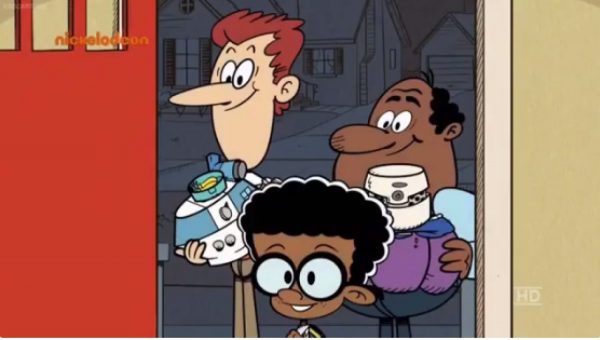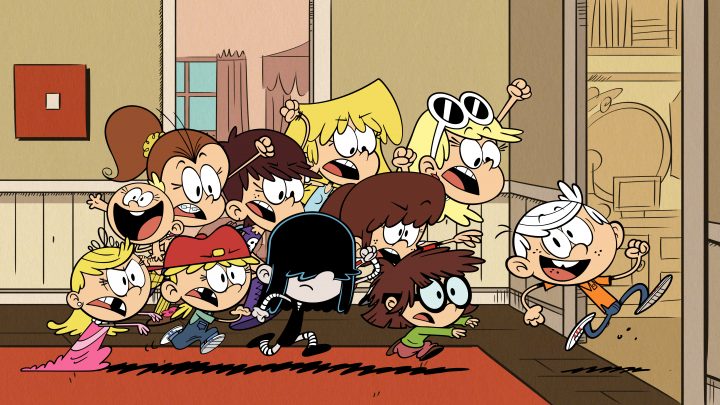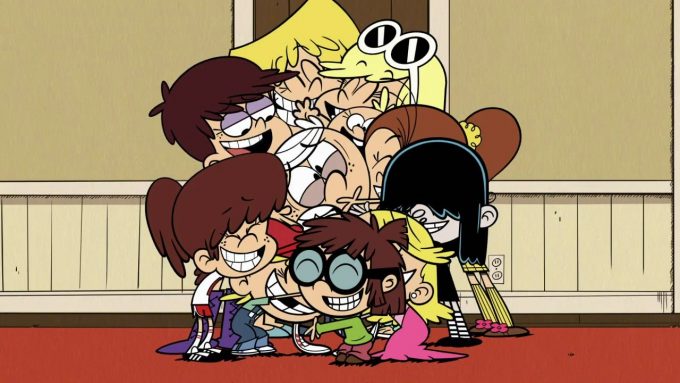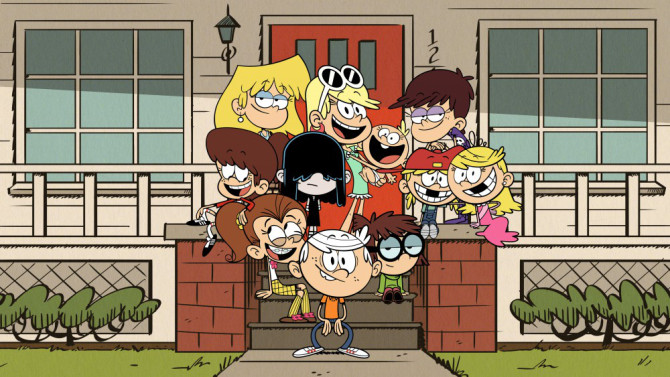
“Time to make history!”, slyly mentions Loud House protagonist Lincoln Loud towards the camera, with an expression and tone that almost seems fourth wall breaking. Following Korra and Asami’s embrace in The Legend of Korra’s series finale, it was recently leaked that Nickelodeon’s newest hit animated series was going to feature its first married gay couple- namely the interracial parents of Clyde McBride, Lincoln’s insecure and nerdy friend. It would be one thing if The Loud House wasn’t a well written show and was just going for some brownie points for inclusion, but it’s one of many examples as to how endearing and clever its creative direction actually is.

Developed by creator Chris Savino and loosely drawing on his experiences growing up with a multitude of sisters, this latest Nicktoon revolves around 11-year old Lincoln’s futile attempts to gain some semblance of privacy- no easy task when you’re surrounded by ten gregarious younger and older sisters. Each of the girls’ personalities generally fit into a specific archetype or interest, but they as well as Lincoln still feel like individual personalities in spite of that. Perhaps they’re not the most complex characters in the world- House isn’t exactly super deep, and its episodes are strictly gag-based slice of life stories. Though that doesn’t mean they can’t feel relatable.

Lincoln tends to have certain types of conflicts for each girl. Oldest sister Lori likes to use the poor kid as a pedicure footstool and assigns not just him, but all of her siblings chore duties in exchange for car rides to various places. This wouldn’t be an issue if the fashion obsessed Leni was actually a competent driver, but sadly all of her attempts at getting her license end in property damage and angry senior citizens. Aspiring musician Luna is an unintended terror whenever she’s brought to any sort of concert, be it a boy band, rock act or the opera.
Youngest baby Lily often isn’t conscious of whatever mayhem she causes, but practical joker Luan and the athletic Lynn’s hobbies will often result in heavy pain for Lincoln, while resident goth Lucy broods and recites gloomy poetry. Gap-toothed twins Lana and Lola couldn’t be any more different, the former being a reckless tomboy and the latter a pink dressed clad wannabe pageant winner. All the while, the super genius Lisa (is that name a tribute to Ms. Simpson?) makes droll comments and destructive experiments.

Each 12-minute short opens with Lincoln describing some sort of household custom, trend or situation, and he acts as the narrator for the audience while he tries to overcome the story’s conflict. The jokes throughout the episodes move at a brisk pace and mostly revolve around an even mix of wordplay and slapstick, with a few occasional off-color jokes now and then (one scene has Lynn mentioning that Lincoln’s room lacks balls to play with, only not being specific at first as to what kinds of balls she means). There are a few running gags consistent through the series, such as the sisters’ various traits and Clyde’s premature crush on Lori, but the situations tend to vary aside from that.
Savino’s art direction is deliberately comic strip influenced, from the character designs down to the backgrounds and eve the title cards which are styled to look like a Sunday strip. The designs of the characters themselves are simplistic but well defined and very expressive, with a rubbery feel to the animation that compliments how physical many of the jokes are. Though I do find it a bit weird how all of the adult characters have fully visible faces, with the exception of the Loud parents who are always covered a la Nanny from Muppet Babies.

Even though the cast is exaggerated as all hell, their relationships feel more believable than many child characters in animation. Many shows tend to emphasize sibling rivalry over affection, often by making the adults incredibly stupid or the eldest child a bully of some sort. And though the Louds frequently argue, tease each other and cause problems for the other siblings, it’s consistently balanced by their friendships and willingness to help solve their kin’s problems. The stories never feel schmaltzy, but it’s pretty clear all of the kids love each other. Granted, the climaxes always have a gag to keep the tone light, but it’s not uncommon for episodes to end with a moral about the importance of family. I’ll take that over some of Spongebob’s recent episodes, where nearly everyone is a prick or just plain stupid.
Nickelodeon for me has delivered more hits than misses when it comes to their original productions. I don’t know if The Loud House will one day overtake Avatar/Korra, Rocko, TMNT or Hey Arnold when it comes to my favorite Nicktoons ever, but it’s well above stuff like Fanboy & Chum-Chum or Breadwinners. Thanks to a mix of sweetness, a cute art style and humor that’s silly without feeling pandering, it’s made a good first impression with me. Recommended, especially if you’ve got kids.
